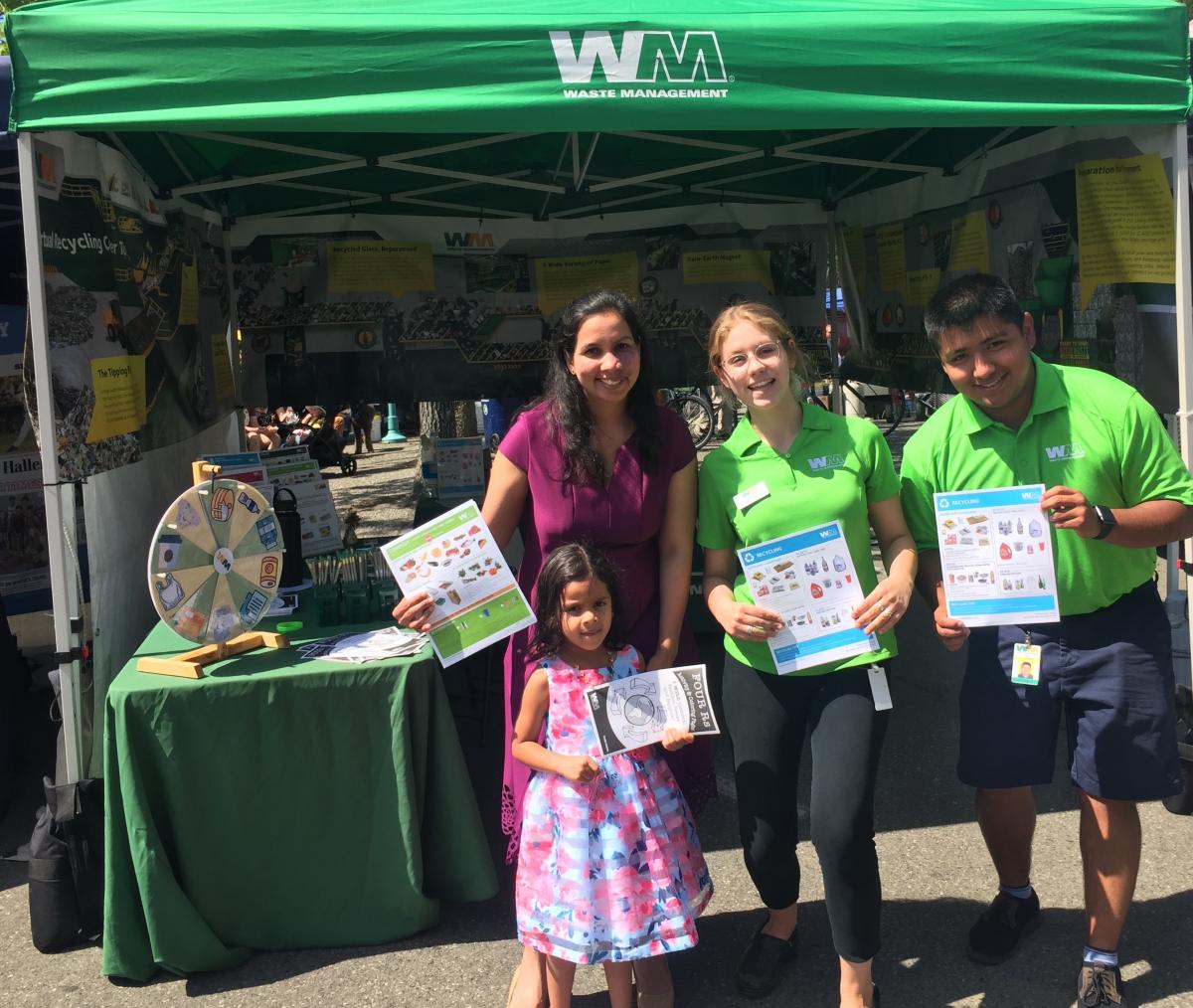
This guest post is by Gabrielle Coeuille. Gabrielle is a senior at the University of Washington, majoring in International Studies with a focus on Environmental Studies at the Jackson School. She hopes to explore international waste management systems after graduation.
This summer I had the opportunity to intern with the Waste Management Recycle Corps – an award-winning program that puts college students through an intensive hands-on job training and then deploys them to lead recycling education and outreach in communities across Puget Sound.
For me, the Waste Management internship was meaningful because of the concentrated learning opportunities (everything you can imagine about waste streams, municipal recycling regulations, and community outreach strategies) and the innovative, hands-on approach to recycling education.
We worked with multi-family property managers and local business owners to strategically optimize their recycling programs. We went door-to-door in apartment complexes and condominiums to help people set up smart recycling systems in small spaces. We delighted kids at community events as they spun the Wheel of Waste to identify what can be recycled, helping grow a new generation of enthusiastic recyclers. We even performed waste-audits to gather data to help organizations and businesses improve their sorting systems.
Each of our strategies addressed the key objectives of the WM Recycle Corps: reducing waste, cleaning up our recycling bins, and making recycling accessible for all through multi-cultural outreach.
An important aspect of this outreach focused on engaging minority, low-income and immigrant communities. Tools like “trans-created” recycling guides, which have been developed with the help of focus groups to be culturally specific, help break down cultural and language barriers that cause problems in our recycling bins. Because recycling programs vary widely across the world, making local recycling information clear, direct and highly accessible for immigrant populations is incredibly important so everyone in our community can recycle correctly.
Sustainability can seem exclusionary when you consider the push to shop local, buy organic and choose “green brands.” This type of environmental consumerism can have a high price tag that many cannot afford.
Recycling, on the other hand, is one of the most equitable and accessible ways for the entire community to integrate sustainability into their daily lives. By investing in community education and outreach across diverse populations, Waste Management is further increasing the community’s ability to correctly participate in our recycling programs.
While working for Waste Management this summer, I realized just how important it is to make education and outreach personal. I came into this internship believing that recycling is a simple process. I learned that it is system which relies wholly on a community’s willingness and ability to participate correctly. As communities become increasingly diverse, so too should our strategies for education. Being flexible, enthusiastic, and open minded is just as important to the success of community outreach and engagement as is knowing the subject. I am very excited to bring this new perspective with me for my last year at UW.
If you are interested in applying for this paid summer internship through Waste Management in Kirkland, applications will open in mid- spring of 2020. Check the Waste Management careers page for application announcements.
